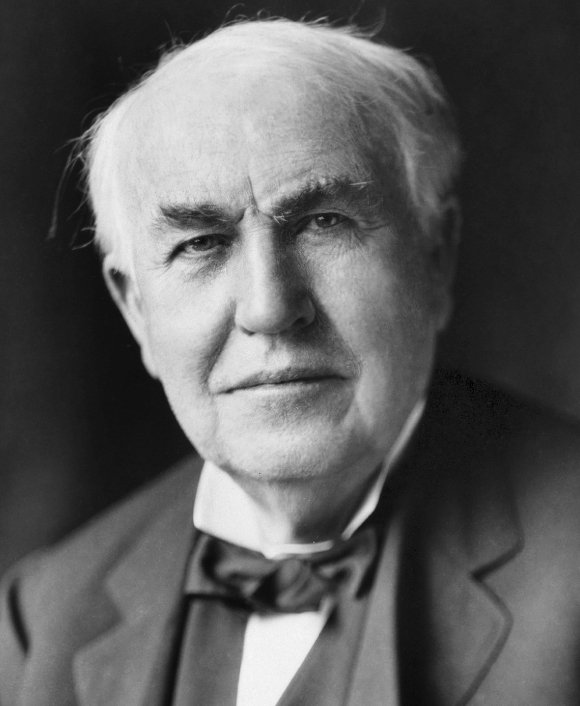On this date in 1847, Thomas Alva Edison was born in Ohio, the youngest of seven. The inventor, who came to be known as “the Wizard of Menlo Park,” read Gibbon’s Decline and Fall of the Roman Empire before the age of 10 and vowed at age 12 to read the entire contents of the Detroit Public Library, was largely self-taught. Supporting himself at a very early age, Edison sold newspapers, worked for railroad companies and became a telegraph operator.
He invented the commercially viable, long-lasting incandescent bulb, the phonograph, motion picture camera and improved the telegraph and telephone, becoming a highly successful businessman and manufacturer. Edison, who held more than 1,300 U.S. and foreign patents, famously noted: “Genius is one percent inspiration and ninety-nine percent perspiration.”
He was a lifelong freethinker who in his 1925 essay “The Philosophy of Paine” called Thomas Paine “our greatest political thinker.”
“I cannot believe in the immortality of the soul,” he told The New York Times. (Oct. 2, 1910) “Heaven? Shall I, if I am good and earn reward, go to heaven when I die? No — no. … I am an aggregate of cells, as, for instance, New York City is an aggregate of individuals. Will New York City go to heaven?” (D. 1931)


